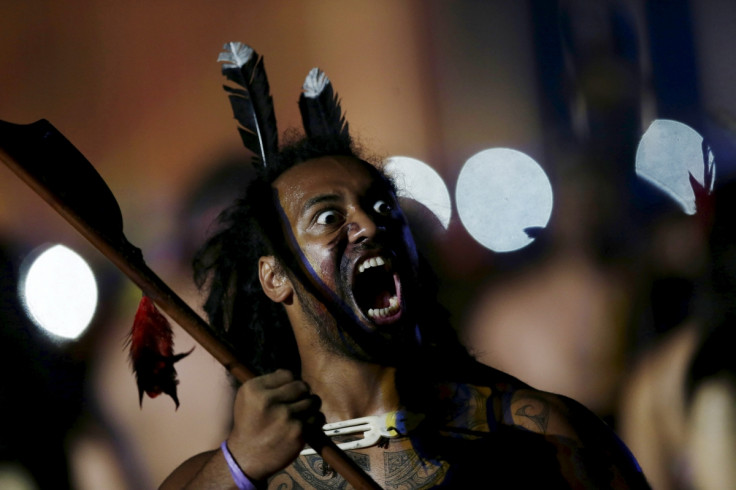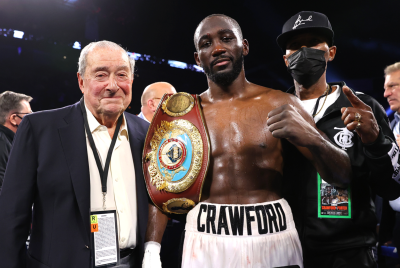Fire & feathers open first World Indigenous Games in Brazil

A parade of feathered headdresses, grass skirts and body make-up was on show as more than 2,000 competitors joined the opening ceremony at the first World Indigenous Games in Brazil.
Athletes from The Ingorot tribe in the Philippines, New Zealand's Maori and indigenous people from Ethiopia, Mongolia and Canada danced and sang in Palmas, a small city in the central state of Tocatins.
From the host country, 24 different indigenous groups are taking part in the games which was previously an all-Brazilian affair.
Over the next 10 days, participants will compete in 10 sports ranging from running and swimming to wrestling and football, as well as more traditional games like spear throwing and racing with heavy logs.
There will be also non-competitive events showcasing the many different traditions of indigenous ethnic groups involved, including a football-style game called xikunahity in which the ball is controlled only with the head which is played in the Matto Gross region of Brazil.
A three-day symposium on issues like land rights, diet and alcoholism will also be held.
The proceedings began with a spectacular fire-lighting ceremony, which saw hundreds of indigenous people from around the world converge on Palmas's central square for some traditional song and dance.
"It's my first time outside of the Philippines, and I took five planes to get here," Elvis Balabal Julius of the Philippines' Igorot people told the Associated Press, adding the evening had been amazing.
"I never thought I would see so many indigenous people together," he added. "We're very similar and very different at the same time."
Unlike the Olympics which Brazil will host next year, every competitor will get a medal. The minimum age for entry is 16, but there is no upper age limit and some events will see men compete with women.
Saplings will also be planted to replace the trees chopped down to make the canoes, spears and other wooden items.
"This is the moment to celebrate, but also to make our demands so that the government hears us and notices what is happening to our planet," Ubiranan Pataxo of Brazil's Pataxo people told The Times.
However, a small group of indigenous people protested against the cost of staging the games, which is believed to be in the region of $14 million or just over £9 million.
"The government is using the event to cover our eyes and say everything is alright here," Narube Werreria told AP. "But everything is not alright."
© Copyright IBTimes 2025. All rights reserved.





















